Država je Erdoğan
Turčija se je na ustavnem referendumu odločila za povečanje pristojnosti predsednika Recepa Tayyipa Erdoğana. Osnutek sprememb nove ustave je po spodletelem puču lanskega julija predlagala vladajoča Stranka za pravičnost in razvoj, krajše AKP, z Erdoğanom na čelu. S spornimi 18 amandmaji bi poglavitna pooblastila za vodenje države skoncentrirali v pristojnosti predsednika in odpravili funkcijo predsednika vlade. AKP trdi, da je vzpostavitev predsedniške republike namesto parlamentarne edina pot k stabilni in enotni Turčiji. Kritiki opozarjajo, da bi pozitiven izid referenduma pomenil pot v diktaturo. Erdoğan si je tovrstnih ustavnih sprememb odkrito želel, odkar je po 12 letih vladanja kot premier leta 2015 postal predsednik.
Spomnimo se rezultatov parlamentarnih volitev junija 2015. AKP je zmagala, a po 12 letih prvič izgubila večino v parlamentu. Erdoğan je dober mesec kasneje razpisal predčasne volitve, češ da premierju ne uspe sestaviti koalicije. Novembra je AKP uspelo dobiti zadostno število poslanskih mandatov za oblikovanje večinske vlade. Da je v praksi država že sedaj Erdoğan in da bo s pozitivnim izidom referenduma to postalo le še uradno, razloži Anna Maria Beylunioğlu Atlı, politologinja, ki poučuje na univerzi Bahçeşehir v Istanbulu. V doktorski nalogi je analizirala odnos AKP do verskih manjšin.
Some people argue that if Turkish people say ’yes’ at the referendum, nothing will change, because in practice we are already living it. It will just become official. Even if Turkish people say ’no’ at the referendum, I don’t think that Erdogan will take ’no’ as an answer. We had elections in June 2015, when AKP’s votes had decreased and he just decided to make another elections. He didn’t take 'no' as an answer, probably he won’t this time too.
AKP je imela že od začetkov na oblasti leta 2002 avtoritarne težnje, ki pa jih intenzivno stopnjuje. Muslimanom in na neki način tudi drugim religijskim skupnostim so ponovno omogočili izražanje vere v vsakdanjem življenju. Tako so si pridobili lepo število zvestih volivcev in volivk. A etnične in verske manjšine imajo pravice, dokler nekako izkažejo spoštovanje in ubogljivost predsednikovi avtoritarni oblasti. Na primer tako, da glasujejo z ‘da’ na referendumu. Beylunioğlu Atlı ponazori s primerom srečanja med predstavnikom armenske manjšine v Turčiji in Erdoğanom.
It’s really ambiguous right now. It’s not ideological anymore. If you somehow respect and accept the authoritarianism of the leaders - for example if you vote ‘yes’ at the referendum and the rulers see that certain community, Non-muslim community voted ‘yes’, I am sure this community will get what they want. That is what I understand from the meeting between one of the representatives of the Armenian community and Erdogan himself. It was reflected in the press that this representative visited Erdogan and asked for help for the board of elections of Non-muslim minorities to take place. Because now everything is cancelled and any elections are forbidden by the government. So this represenative visited the president and asked for its help and the president said - let’s wait until the referendum ... This is also indirectly saying that you should force your commmunity to vote for ‘yes’. This is what I understand by obediance or showing the respect. There is no legal framework established and they have no intention to do it. Everything will be in practice.
This reminds me of the Ottoman system. Where everything depended on the Sultan’s words. Some also call the system today – religious Kemalism. Islamic Kemalism. Because they use same tools as Kemalists used to apply. Now it’s only coming from Islamic source, nothing has changed actually. In the end minorities can only get what they want if they show respect or expect everything what Erdogan, the president wants.
Erdoğan se pri pojasnjevanju večine svojih dejanj izgovarja na floskulo »ljudstvo me je izvolilo, to je demokracija«. Demokracija, kot jo pojmuje AKP, ne temelji na enakosti, temveč na toleranci. Pogoj tolerance pa je brezpogojno spoštovanje oblasti. Razloži Anna Maria Beylunioğlu Atlı.
First of all, they are trying to change the meaning of democracy here. Because they say that the most important element of democracy is that government reflects the choice of people. But this is not enough, because if you are changing the society and forcing people in one direction, saying – if you vote for ’no’, the country will be divided, we will go in a bad direction, the economy will get worse and so on. By this you place fear within a society. Then you get elected and you say that – oh people elected me, this is democracy. Democracy is not only elections. Elections are important, but you have to maintain freedom of speech, freedom of religion, gender equility as well. There are a lot of dimensions of democracy. Flourishing of civil values and so on. What AKP is doing right now it’s changing the content of democracy, limiting it. What they call democracy is not democracy in European sense. Of course we could discuss problems in European democracies also, but if we are talking about idealistic concept of European democracy, what AKP is trying to define is not the same.
In their understanding of democracy – their approach towards religious minorities doesn’t necessarily have any relation to equality principle. They use tolerance principle, which for AKP means that you tolerate someone if they are respectful to you. If they don’t show respect to you, you don’t have to tolerate anyone. This is the principle that they are applying right now. In terms of minorities too. For example, they continue to say that we don’t have any problem with the Kurdish people. But they consider only those Kurds who are voting for AKP today. Conservative Kurdish people who also have divisions within themselves. With the rest of the religious minorities, the Alevis and others, again - tolerance. It is not equality, is tolerance.
Erdoğan v političnem diskurzu gradi mit o turškem narodu, ki naj bi ga zaznamovala predvsem pripadnost sunitski veji islama. AKP spodbuja izražanje vere v javnem prostoru. Muslimani, ki živijo v skladu z verskimi normami, se zadnje desetletje počutijo svobodne. A Erdoğan gre v skrajnosti. Po spodletelem puču je denimo pozival h klanjanju Alahu. Po njegovem so vse metode omejevanja spočetja otrok izdajstvo. Ženske, ki zavračajo materinstvo in gospodinjenje, so le polovične osebnosti. Kritiki se bojijo, da gre Turčija v smer postopnega uvajanja načel islama v državne zadeve. Beylunioğlu Atlı razloži, kako je religija učinkovito orodje za nadzor nad ljudstvom.
Because here, in countries like Turkey and Russia, religion is placed under the state control and used as a tool. To suppres or shape people’s views. To control people. We have actually seen after the coup that in the mosques imams had preached pro-AKP kind of things. So they are trying to shape people under those views. Referendum campaign, most of the imams promoted to vote ‘yes’ at the referendum. In every sense, you can see that religion in basically used as a tool, as a state apparatus.
Z izjemo nekaj relativnega miru v 21. stoletju je Turčija politično vetrovna dežela – tudi po vzpostavitvi republike 1923 so si vojaški udari sledili na približno vsakih deset let. Podobno stanje kot danes je vladalo po vojaškem udaru leta 1980, ko je vojaška hunta ustavo spremenila tako, da je državo ponovno povezala z religijo in prevladujočo sintezo sunitskega islama vsiljevala v vse pore javnega življenja.
Turško ljudstvo ob vsakokratnih avtoritarnih težnjah oblasti postaja naveličano. To z orisom današnje atmosfere razloži Anna Maria Beylunioğlu Atlı.
Actually we are a little bit tired of talking about his. Maybe because we feel hopeless – it’s very funny, bacause in the beginning – seeing that AKP was winning the elections was a good thing for most of us. Although we didn’t vote for them, it was a good thing. Because they were representing a progress in the system. At that time, if we compare them with other parties. Since we started seeing their authoritarian turn. It’s now difficult for us to see that they are winning again, despite their authoritarian turn. So we are hopeless, this is one of the reasons that people are not talking about it in the public space. I think we are becoming apolitical now, like it happened in 1980’s. Authoritarian tendencies make us hopeless. We don’t feel any benefit of talking about it.
This was the case after 1980’s. We were very apolitical because Turkish political system was composed of coalition parties, that were changing all the time and the policies were never completed. So this coalition term was unfruitful also. Of course, one of the AKP’s claim today is that they will make Turkey stronger. Because there will be one party, one regime, so it will be easy to pass certain laws. That this is one of the advantages that you don’t have coalition parties. But of course, when you have one party government and when you don’t have a system of checks and balances, it’s not good also.
A v sodobni republiki Turčiji je vsaka politična oblast, ki se je zdela napredna in je družbi na neki način res prinesla napredek, prešla k skrajnemu delovanju. Oče sodobne Turčije Mustafa Kemal Paşa - Atatürk je odpravil vladavino šeriatskega prava in vpeljal civilno, uvedel turški jezik in latinsko abecedo, ženskam je podelil volilno pravico. Po drugi strani je zapiral mošeje in prepovedal verske simbole v javnosti. Ideologiji kemalistov in stranke AKP se zdita povsem nasprotujoči si, a sta obe zasnovani predvsem na nacionalizmu. In obe izvajata podobne represivne prakse, predvsem nad verskimi manjšinami, primerja sogovornica.
Although many would disagree, I think AKP is not worse than the Kemalist practices, which were also very authoritarian for Non-muslims. We are back on the same point as we started actually. It is really dissapointing, despite AKP never had any democratic ideas and so on, they pursued their own interest from the beginning. But it worked for Non-muslims to feel relieved, at least in the short term. And I am so sorry that we are back on the same point where we have started.
Because the Kemalistic understanding of secularism was still restrictive. Although in law Turkish state didn’t recognize any religious groups or any religion at all, in practice it was different. In practice religious minorities were excluded … they couldn’t get most of the benefits, which Muslims could. It was all in practice. Under the Kemalist era, I think Non-Muslims had their worst time, in regard to property issues for example. Their properties were confiscated, there were physical assaults toward religious minorities. This made them feeling that they have to leave the country. Comparing today with the AKP’s period between 2005 and 2011, in latter we were in a better state. Although there were no legal frameworks supporting this. The changes AKP had made, remained in practice. But still, Non-muslims benefited from the situation. Today, I think we are not in a worse situation. We are in a similar situation (as under the Kemalists). That’s why I am saying that we are back there where we have started.
Kemalist mentality is similar of what we are living today. Seculars also didn’t want to recognize Non-muslims. The difficulties we are facing today are put in front of us with the same tools as with the previous government. The tools are the same, only the reasons have changed. First, let me explain the idea of secularism in Kemalist term. It’s not similar what you have in Europe. Of course it changes from country to country, but in general, secularism means that you don’t recognize any religion. Or that you don’t prioritize any religion over other, right? But in Kemalist era or in the secular era, this was not the case. State approved Islam over other religions. That’s why I am saying that it’s not the opposite of what we have today. It’ more complicated. // Everything is the same. The danger here is that now we have one man regime. This is different and this is more dangerous. But the tools they are using are the same that have been used since the establishment of the Turkish government in 1923.
Med tremi opozicijskimi strankami v turškem parlamentu imajo največ sedežev kemalisti – Narodna republikanska stranka, krajše CHP. Opozicija retoriko in politike gradi skoraj izključno na brezpogojnem nasprotovanju AKP. Turška politična scena se zdi razdeljena na dva pola. Prvo polovico predstavljajo AKP s simpatizerji, drugo vsi, ki AKP nasprotujejo. Kako zelo je Turčija polarizirana, razloži sogovornica.
Half is for certain conservative, not necesarilly devoted Muslims, but pro-AKP in a sense. The other half is composed by Kemalists, Kurds, some of the Alevis, Christians and leftists. Probably there are more labels, but today they stand almost together. Because this is the ‘no’-side before the referendum. But in general there are very conflictual views among them. Kemalists for example don’t want Kurds. They think that they are dividing the country. So they are very divided, even though they are all secularized, they are very very divided.
Veliko Turkov išče nove možnosti v tujini in priznava, da če bi imeli možnosti, ne bi prav nič oklevali z odhodom iz države. Erdoğan in privrženci zadnje mesece intenzivno zapirajo nasprotnike iz vrst akademikov, novinarjev in pravnikov. Odpuščanja izvajajo pod krinko, češ da gre za vpletene v poskus državnega udara julija lani. Intelektualni eksodus iz Turčije je verjetno neizogiben, pritrjuje Beylunioğlu Atlı.
The society is becoming more and more desecularized. People feel restricted, at least some of them feel that they will have a better life abroad. Especially this is the case with academicians and journalists. They are all leaving the country. There are those, who are saying - this is my country, why should I leave. But the conditions are getting worse and worse. It’s really difficult for them to find a job here, because you are more likely to have a job if you have some networks or connections with AKP.
I don’t know, it really depends on this referendum. It is very important. if we will have a ‘no’, of course there will be a struggle. But there will be a civil society boom, so there might be hope. But if things get worse, we will have pro-AKP intelectualls, who already try to find an excuse for the policies of the government. They will try to justify AKP’s actions. This will increase. People who are like us will try to find job in another sector, not academia. I can maybe think about career in cooking … Or I can find a job abroad. But I don’t think that things will stay like this, it is impossible, so we will wait until something changes and we could be useful for our own country, for academia in our own country.
Sogovornica za konec poudari še, da je v turški politiki iluzurno kritizirati zgolj AKP.
Europe’s idea of secularism is different, secular people in Europe are different. In Turkey, seculars represent restrictive ideas also. To criticise Turkey you have to understand both sides. If you focus on AKP as an authoritarian and on the other side seculars as representatives of the democratic state’s idea - it’s an illusion. Actually that’s really wrong, because the AKP was the party actually who introduced real changes and ideas for breaking Kemalist’s tabues in Turkey, and they actually wanted to redefine secularism in Turkey. If they had not turn into authoritarianism, they could succeed and I think Erdogan would be a hero for many people in Turkey. But he missed his chance, because he chose prioritising one part of the society - Muslims - as more important than others. So he missed a big chance.
Z Anno Mario Beylunioğlu Atlı se je v predreferendumski Turčiji pogovarjala Nina Korošec.


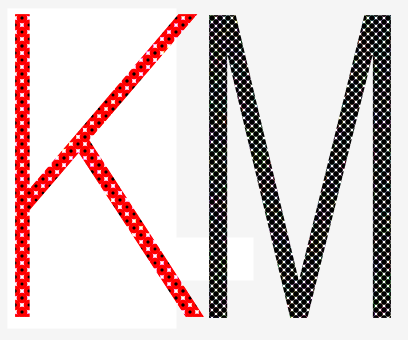
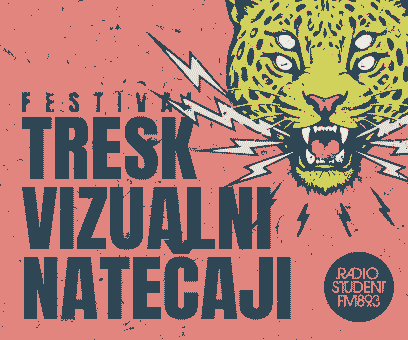

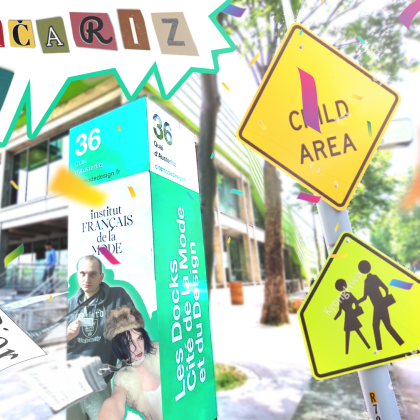
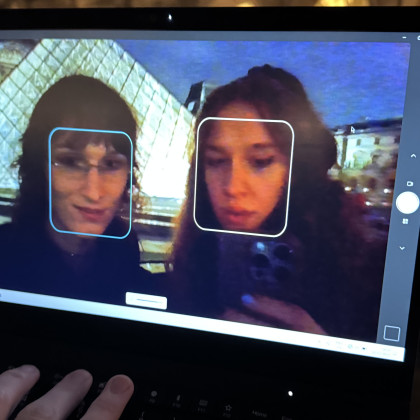
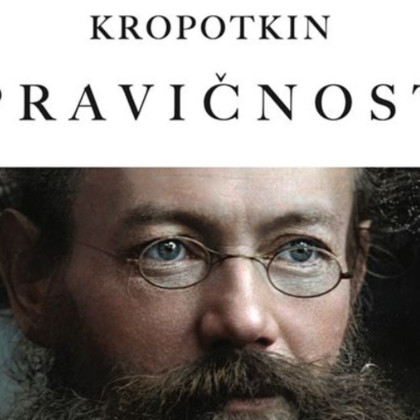



Dodaj komentar
Komentiraj